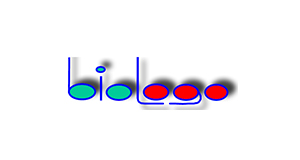CML (N-Epsilon)-Carboxymethyl-Lysine
CML (N-Epsilon)-Carboxymethyl-Lysine, Monoclonal, IgG1, Clone: CMS-10
Artikelnummer
BILCML011
Verpackungseinheit
50 µg
Hersteller
BioLogo
Verfügbarkeit:
wird geladen...
Preis wird geladen...
Clone: CMS-10
Background: This antibody is suitable for the detection of CML in tissues and tissue extracts. Long-term incubation of proteins with glucose leads, through Schiff's base and Amadori rearrangement products, to the formation of advanced glycation end products (AGE) which are characterized by fluorescence, brown color and inter- and intra-molecular cross-linking. Recent immunological studies using anti-AGE antibodies demonstrated the presence of AGE in (i) human lens, (ii) renal proximal tubules in patients with diabetic nephropathy and chronic renal failure, (iii) atherosclerotic lesions of arterial walls, (iv) ß2-microglobulin of carpal tunnel amyloid fibril deposits in patients with hemodialysis-related amyloidosis and (v) brain tissues of patients with Alzheimer’s disease. N-epsilon-(carboxymethyl)-lysine was identified to be a major structure in AGE (Dunn et al., 1989). Oxidative cleavage of Amadori-products seems to be the main pathway of CML-formation in vivo. More recent investigations however have shown, that as well lipid-peroxidation as glycoxidation can be involved in CML-build up in vivo (Fu et al., 1996). Reaction with CML-HSA and free CML in competitive ELISA, no reactivity with CEL.
Immunogen: N-epsilon-(Carboxymethyl)-Lysine (CML) conjugated to KLH
Purification Method: Protein G affinity purified antibody from ascites
Concentration: 0.25 mg/ml
References: 1. Horiuchi S., Araki N., and Morino Y. (1991) Immunological approach to characterize advanced glycation end products of the Maillard reaction: Evidence for the presence of a common stucture. J. Biol. Chem. 266; 7329-7332. 2. Dunn J.A., Patrick J.S., Thorpe S.R., Baynes J.W. (1989): Oxidation of glycated proteins: age-dependent accumulation of N-epsilon-(carboxymethyl) lysine in lens proteins. Biochemistry. 28: 9464-9468. 3. Fu M.X., Requena J.R., Jenkins A.J., Lions T.J., Baynes J.W., Thorpe S.R. (1996): The advanced glycation end product, N-epsilon-(carboxymethyl) lysine, is a product of both lipid peroxidation and glycoxidation reactions. J.Biol.Chem.271: 9982-9986
Caution: These antibodies are intended for in vitro research use only. They must not be used for clinical diagnostics and not for in vivo experiments in humans or animals.
Background: This antibody is suitable for the detection of CML in tissues and tissue extracts. Long-term incubation of proteins with glucose leads, through Schiff's base and Amadori rearrangement products, to the formation of advanced glycation end products (AGE) which are characterized by fluorescence, brown color and inter- and intra-molecular cross-linking. Recent immunological studies using anti-AGE antibodies demonstrated the presence of AGE in (i) human lens, (ii) renal proximal tubules in patients with diabetic nephropathy and chronic renal failure, (iii) atherosclerotic lesions of arterial walls, (iv) ß2-microglobulin of carpal tunnel amyloid fibril deposits in patients with hemodialysis-related amyloidosis and (v) brain tissues of patients with Alzheimer’s disease. N-epsilon-(carboxymethyl)-lysine was identified to be a major structure in AGE (Dunn et al., 1989). Oxidative cleavage of Amadori-products seems to be the main pathway of CML-formation in vivo. More recent investigations however have shown, that as well lipid-peroxidation as glycoxidation can be involved in CML-build up in vivo (Fu et al., 1996). Reaction with CML-HSA and free CML in competitive ELISA, no reactivity with CEL.
Immunogen: N-epsilon-(Carboxymethyl)-Lysine (CML) conjugated to KLH
Purification Method: Protein G affinity purified antibody from ascites
Concentration: 0.25 mg/ml
References: 1. Horiuchi S., Araki N., and Morino Y. (1991) Immunological approach to characterize advanced glycation end products of the Maillard reaction: Evidence for the presence of a common stucture. J. Biol. Chem. 266; 7329-7332. 2. Dunn J.A., Patrick J.S., Thorpe S.R., Baynes J.W. (1989): Oxidation of glycated proteins: age-dependent accumulation of N-epsilon-(carboxymethyl) lysine in lens proteins. Biochemistry. 28: 9464-9468. 3. Fu M.X., Requena J.R., Jenkins A.J., Lions T.J., Baynes J.W., Thorpe S.R. (1996): The advanced glycation end product, N-epsilon-(carboxymethyl) lysine, is a product of both lipid peroxidation and glycoxidation reactions. J.Biol.Chem.271: 9982-9986
Caution: These antibodies are intended for in vitro research use only. They must not be used for clinical diagnostics and not for in vivo experiments in humans or animals.
| Artikelnummer | BILCML011 |
|---|---|
| Hersteller | BioLogo |
| Hersteller Artikelnummer | CML011 |
| Verpackungseinheit | 50 µg |
| Mengeneinheit | STK |
| Reaktivität | Human |
| Klonalität | Monoclonal |
| Methode | ELISA, Immunohistochemistry |
| Isotyp | IgG1 |
| Wirt | Mouse |
| Produktinformation (PDF) | Download |
| MSDS (PDF) |
|

 English
English







